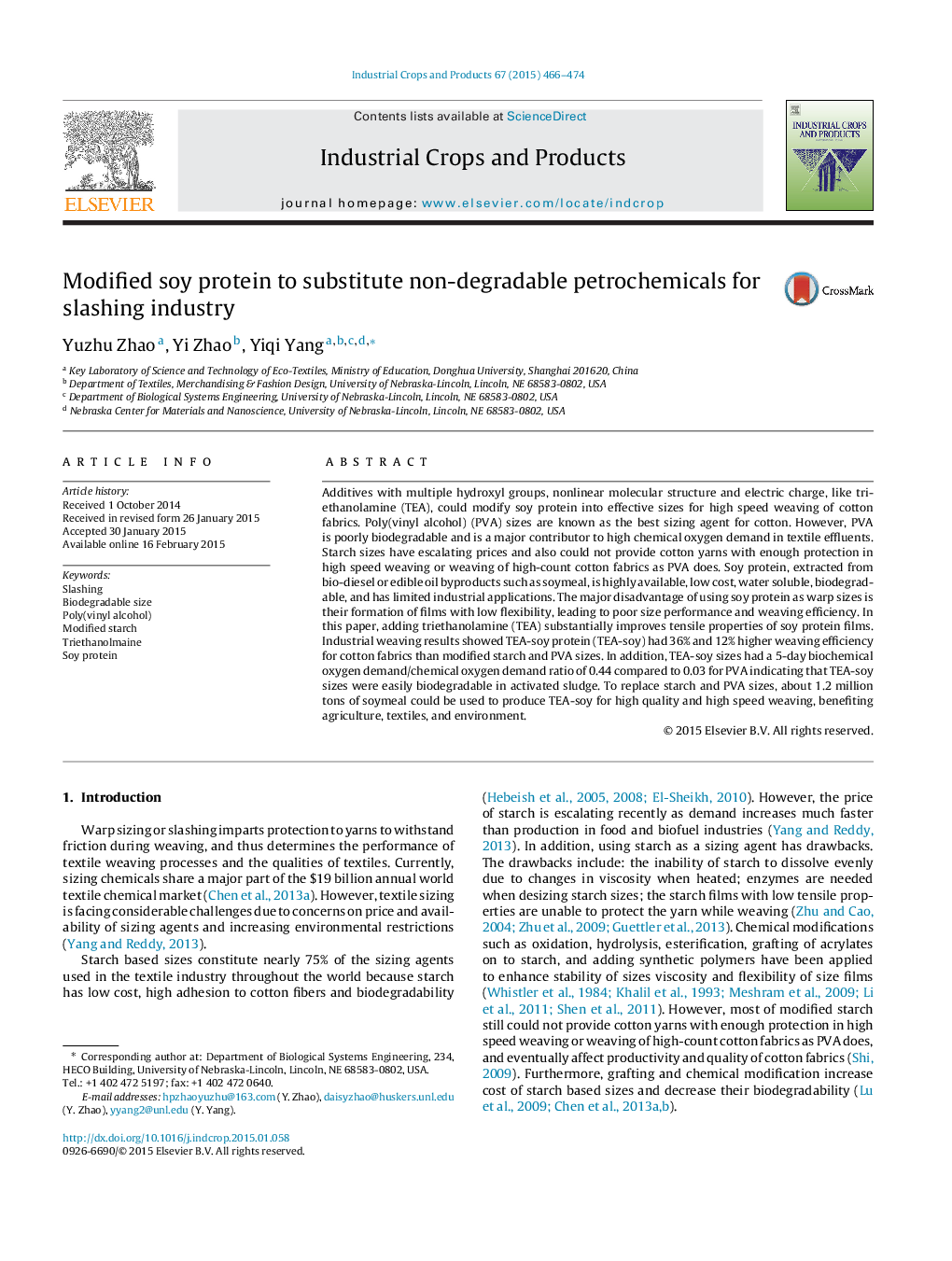| کد مقاله | کد نشریه | سال انتشار | مقاله انگلیسی | نسخه تمام متن |
|---|---|---|---|---|
| 4513088 | 1624842 | 2015 | 9 صفحه PDF | دانلود رایگان |
• Unfolding of soy protein by additives with specific chemical structures.
• Triethanolamine-soy protein for cotton sizing with high weaving efficiency.
• Biodegradable cotton sizes for replacing PVA to decrease COD in textiles effluent.
• Large-scale consumptions of soy meal for cotton slashing to benefit agriculture.
Additives with multiple hydroxyl groups, nonlinear molecular structure and electric charge, like triethanolamine (TEA), could modify soy protein into effective sizes for high speed weaving of cotton fabrics. Poly(vinyl alcohol) (PVA) sizes are known as the best sizing agent for cotton. However, PVA is poorly biodegradable and is a major contributor to high chemical oxygen demand in textile effluents. Starch sizes have escalating prices and also could not provide cotton yarns with enough protection in high speed weaving or weaving of high-count cotton fabrics as PVA does. Soy protein, extracted from bio-diesel or edible oil byproducts such as soymeal, is highly available, low cost, water soluble, biodegradable, and has limited industrial applications. The major disadvantage of using soy protein as warp sizes is their formation of films with low flexibility, leading to poor size performance and weaving efficiency. In this paper, adding triethanolamine (TEA) substantially improves tensile properties of soy protein films. Industrial weaving results showed TEA-soy protein (TEA-soy) had 36% and 12% higher weaving efficiency for cotton fabrics than modified starch and PVA sizes. In addition, TEA-soy sizes had a 5-day biochemical oxygen demand/chemical oxygen demand ratio of 0.44 compared to 0.03 for PVA indicating that TEA-soy sizes were easily biodegradable in activated sludge. To replace starch and PVA sizes, about 1.2 million tons of soymeal could be used to produce TEA-soy for high quality and high speed weaving, benefiting agriculture, textiles, and environment.
Figure optionsDownload as PowerPoint slide
Journal: Industrial Crops and Products - Volume 67, May 2015, Pages 466–474
